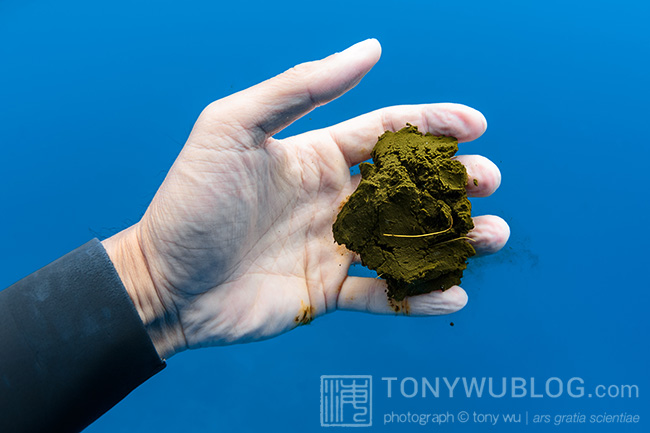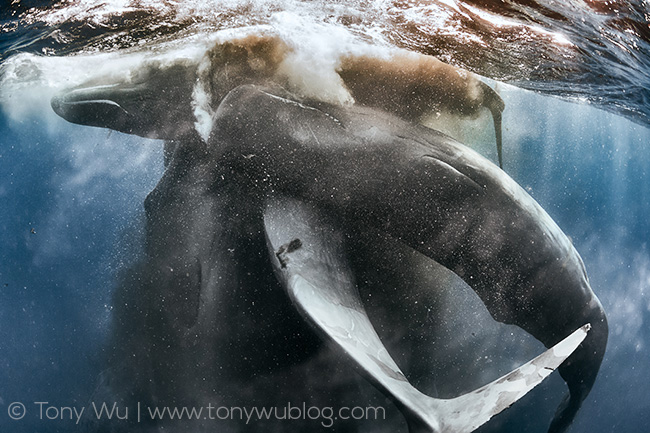Whale poop is in the news. It's about time!

Joe Roman, a conservation biologist at the University of Vermont, and colleagues recently published a paper titled Whales as Marine Ecosystem Engineers (Front Ecol Environ 2014; doi:10.1890/130220: Joe Roman, James A Estes, Lyne Morissette, Craig Smith, Daniel Costa, James McCarthy, JB Nation, Stephen Nicol, Andrew Pershing, and Victor Smetacek).
The paper pulls together decades of research and observations relating to the role that the great whales play in the health of ocean ecosystems, and by extension, the environmental balance of the entire planet.
In brief, the authors argue that recovery of great whale populations in recent decades subsequent to the cessation of widespread commercial whaling has helped to "buffer marine ecosystems from destabilizing stresses" and that continued recovery of whale activity "could lead to higher rates of productivity in locations where whales aggregate to feed and give birth."
The team of researchers propose several mechanisms to illustrate why this is the case, but the one that's most dear to my heart is the discussion of whale poop.
To quote from the paper's summary:
"Whales facilitate the transfer of nutrients by releasing fecal plumes near the surface after feeding at depth and by moving nutrients from highly productive, high-latitude feeding areas to low-latitude calving areas"
The team included one of my photos in the paper to help illustrate this point.
In other words, whales eat stuff down deep and poop at the surface, thus recycling nutrients, both laterally (deep water to shallow water...sperm whales would be a good example of this), and also regionally (from feeding areas with lots of food to calving areas with relatively little food...humpback whales would be a good example of this).

See? All these years I've been obsessed with whale emissions haven't been for naught after all.